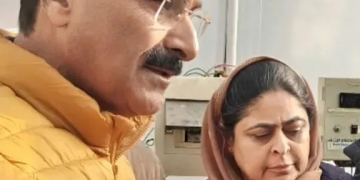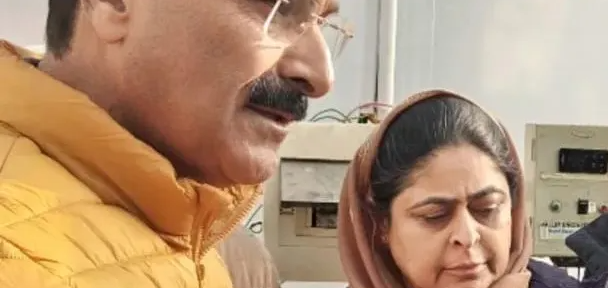#Agriculture #ExoticVegetables #SustainableFarming #HolisticAgricultureDevelopmentProgramme #Kashmir #CommunitySeedBank #PolyGreenHouse #Agri-cottageIndustries #VerticalExpansion #EconomicOpportunities
Description: Explore the groundbreaking initiatives in Kashmir’s agricultural landscape as the Director of Agriculture, Chowdhury Mohammad Iqbal, inaugurates the ‘Community Seed Bank Lar’ and a low-cost poly green house in the pursuit of holistic agriculture development. Delve into the economic significance of exotic vegetables, the challenges of decreasing agricultural land, and the opportunities for farmers to maximize returns through the cultivation of high-demand vegetables like parsley, broccoli, lettuce, mint, celery, purple cauliflower, and yellow zucchini. Uncover the potential for small-scale agri-cottage industries and vertical expansion under the Holistic Agriculture Development Programme (HADP).
In a significant stride towards holistic agriculture, the Director of Agriculture in Kashmir, Chowdhury Mohammad Iqbal, recently inaugurated the ‘Community Seed Bank Lar’ and a low-cost poly green house in the Wussan zone of sub-division Kangan, district Ganderbal. These initiatives, part of the Holistic Agriculture Development Programme (HADP), mark a crucial step towards sustainable and diversified farming practices in the region.
During the inauguration, Director Iqbal emphasized the economic importance of exotic vegetables, urging farmers and agri-preneurs to seize the opportunity presented by the unique agro-climatic conditions of the region. As agricultural land diminishes due to urbanization and other factors, the cultivation of exotic vegetables such as parsley, broccoli, lettuce, mint, celery, purple cauliflower, and yellow zucchini offers a promising avenue for farmers to boost their income.
The director highlighted the escalating demand for exotic vegetables in Kashmir, driven not only by local consumers but also by the influx of tourists. Tourists, he noted, prefer vegetables familiar to them, creating a substantial market for these high-value crops. With this growing demand, the cultivation of exotic vegetables presents a lucrative prospect for farmers to meet the evolving needs of the market.
Chowdhury Mohammad Iqbal urged officers to organize awareness programs for farmers, shedding light on the vast scope for vertical expansion and the cultivation of exotic vegetables. Furthermore, he stressed the promotion of small-scale agri-cottage industries, such as Apiculture (beekeeping) and Mushroom cultivation, both integral components of the HADP. Various projects under the HADP aim to support and uplift these enterprises, contributing to the overall development of agriculture in the region.
The inauguration of the ‘Community Seed Bank Lar’ and the low-cost poly green house signifies a pivotal moment in Kashmir’s agricultural landscape. The push towards exotic vegetable cultivation, coupled with the promotion of small-scale agri-cottage industries, aligns with the region’s commitment to sustainable and diversified farming practices. As farmers embrace these initiatives, they not only address the challenges of diminishing agricultural land but also tap into new economic opportunities, ensuring a thriving future for Kashmir’s agriculture.































